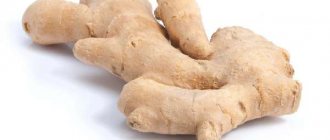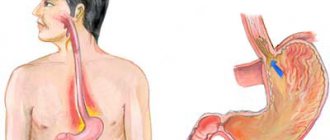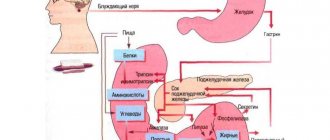What is burping
This is an involuntary release into the mouth of gases that entered the body during swallowing; the process of air release is beyond human control. A healthy person, when swallowing, can swallow a small portion of air along with food, which will later come out back through the esophagus, and this will not be felt at all. If the amount of air swallowed is large, then the body itself begins to regulate the removal of excess air, which is expressed in the form of belching (belching).
Normally, excess air from the stomach leaves not only through the mouth, but also through the intestines and is absorbed through its walls. Pathological regurgitation of air can be observed due to its constant excess in the stomach, which ends up there during the process of swallowing food. This may be caused by aerophagia, pneumatosis of the stomach or other phenomena. If belching is not associated with eating food and can occur at any time (sudden), then it may be associated with neurotic aerophagia (nervous swallowing of air).
Frequent belching of air is a pathological process that needs treatment, because it can be a symptom of some disease, especially if the belching is accompanied by unpleasant sensations in the intestines, the presence of some kind of taste in the mouth.
How to get rid
When this disease appears, many people think about their health, and also about the fact that it is not aesthetically pleasing. Therefore, if gas formation occurs frequently, a person begins to look for a way to get rid of belching air.
Only a doctor can tell you how to treat belching after he understands the reasons for its occurrence. If the doctor identifies the cause correctly, then the main treatment should be aimed at eliminating this problem.
If the pathology is caused by nervous shock, the following treatment is recommended for frequent belching:
- In order for the illness to go away, it is advised to distract the patient; if this works, the conditioned reflex will die out and the person will stop belching air;
- if a person has increased salivation, it is recommended not to swallow saliva, but to spit it out;
- food must be chewed thoroughly;
- adhere to a special diet that excludes foods that linger in the stomach for a long time;
- eat less, but more often;
- do physical exercises and breathing exercises;
- You should calm down and try not to get nervous.
Interesting! Heaviness and pain in the stomach, nausea and belching are the causes of discomfort
If the causes of the disease are directly related to poor nutrition, you need to follow the rules:
- To avoid swallowing excess air, it is better to stop talking while eating, this will help avoid swallowing excess air.
- People who abuse bad habits should not swallow smoke with air while smoking.
- You need to chew your food thoroughly, this helps improve digestion.
- Remove foods that cause belching from your diet.
- Do not drink juices through a straw; at this point, the patient swallows excess air along with the liquid. It’s better not to eat when you’re stressed, first calm down and then eat.
- You should stop chewing gum and eat foods with microelements and vitamins.
- Try not to exercise after eating, but it is also not recommended to lie down to rest.
- Avoid drinks containing gases or air bubbles. Since excess air leads to active release of gases.
If you follow these rules, then gastric motility will return to normal, and the patient’s well-being will improve, and discomfort and other symptoms will disappear.
Why does it occur
Reasons for occurrence:
- problems breathing through the nose;
- bad habit of eating quickly and snacking on the go;
- frequent overeating;
- consumption of very cold or hot food;
- talking while eating;
- dental diseases;
- pregnancy (hormonal changes or enlargement of the uterus, which causes abdominal pressure and stomach position to change);
- physical activity immediately after eating;
- frequent use of chewing gum (causes increased salivation and regurgitation);
- frequent consumption of alcoholic and carbonated drinks;
- periodically drinking soda to reduce heartburn symptoms;
- neurosis;
- aerophagia.
Pathological belching can be caused not only by diseases of the gastrointestinal tract, but also by the thyroid gland and others. This release of gases has an unpleasant odor and taste in the mouth: bitterness, acidity, belching may smell of hydrogen sulfide or acetone. In these cases, contacting a specialist is mandatory.
Symptoms of pathology
Depending on the disease, different types of belching may occur, for example:
- with a sour odor and accompanying flatulence indicate increased acidity of the stomach. Such symptoms indicate gastritis, the presence of ulcers in the stomach or duodenum;
- with a rotten smell (“rancid oil”, “rotten eggs”). May occur during the process of putrefaction (stagnation) in the stomach, associated with the presence of pyloric stenosis, cancer, gastritis, poisoning and other diseases;
- bitter. Occurs when bile flows back into the stomach due to cholecystitis, cholelithiasis, gastroesophageal disease, diabetes mellitus, hepatitis A, hernia, dyskinesia, reflux, abdominal trauma, due to taking certain pills, etc. In addition, depending on the disease, its own symptoms are added, for example, with gastroesophageal disease the following may be observed: cough, arrhythmia attacks, shortness of breath, bloating, dry throat, etc.;
- air in large quantities. Occurs when there is increased gas formation in the gastrointestinal tract, for example, due to the consumption of carbonated drinks, swallowing air during meals (with a runny nose, due to nervousness), etc.
Belching on an empty stomach
When belching air not associated with food intake on an empty stomach, we can talk about the neurological condition of the patient, who experiences spasms and disorders in the gastrointestinal tract. This regurgitation of air occurs against the background of a deep breath or during nervous breathing. At the same time, a person may experience a feeling of a lump in the throat or behind the chest, nausea, vomiting, pain, bloating, headache, and dizziness. You may have difficulty swallowing food and fluid may get stuck.
Belching after eating
Belching after eating occurs when eating rules are violated (snacks on the run, talking at the table, etc.). Excess air entering the stomach can cause belching after eating. The presence of taste and smell indicates disturbances in the functioning of the digestive organs and various gastrointestinal diseases. In addition to belching, other symptoms can be observed here, for example, the presence of a coating on the tongue.
Constant belching
Constant uncontrolled release of air through the mouth means not only the presence of a disease, it can also occur with overeating, frequent consumption of food and as a result of neurotic aerophagia.
The symptoms of the pathology are:
- loud belching;
- belching can occur regardless of food intake, all day long (morning, afternoon, night);
- there may be a feeling of fullness and heaviness in the pit of the stomach;
- flatulence may occur;
- sometimes there is difficulty breathing;
- Painful sensations in the cardiac region and attacks of angina pectoris (in patients with cardiac ischemia), arrhythmia may be observed.
Belching air with pain
If the process occurs with pain, then we can talk about the beginning of the development of a gastrointestinal tract disease. This symptom may develop due to:
- smoking after eating (when the smoker swallows smoke, and therefore excess air);
- eating fruit for dessert. Although the traditional conclusion of a meal involves eating fruit for dessert, gastroenterologists advise eating it a few hours after eating. Otherwise, mineral elements from other products interact with organic acids from fruits, and this has a negative impact on the digestion process;
- drinking tea after meals. The enzymes contained in tea make proteins heavier and interfere with digestion (undigested food causes belching);
- taking a bath after eating;
- drinking cold drinks (water) after meals, which interferes with the processing and absorption of lipids;
- sleep after a heavy meal, since during sleep the digestion process is disrupted.
Belching with pain is typical for the following diseases:
- gurgle;
- peptic ulcer;
- inflammation of the pancreas;
- chronic cholecystitis;
- the presence of a malignant tumor.
Belching and lump in throat
These symptoms are typical for the following diseases:
- VSD;
- laryngeal tumors;
- osteochondrosis of the cervical spine.
Also, the sensation of a lump in the throat when belching can occur with various pathologies of the gastrointestinal tract, thyroid gland, and neurological disorders.
Aerophagia in children
Aerophagia is a common occurrence in newborns and infants. The nervous system of babies cannot yet cope with regulating the digestion process. The development of pathology is also facilitated by: lack of the proper amount of milk in the mother’s breast, sucking on an empty nipple, and incorrect position of the child while sucking the breast. Sometimes belching can be provoked due to weakness (underdevelopment due to age) of the muscle tissue located at the entrance to the stomach; this is not observed in older children.
The main signs of aerophagia in children are:
- bloating;
- crying and nervousness during feeding;
- refusal to eat, which leads to weight loss.
After regurgitation, the child immediately calms down and feels better. The diagnosis of aerophagia can be confirmed by diagnosing using radiography.
In older children, burping may occur when eating is combined with physical activity (running) or talking at the table. Sometimes this phenomenon can occur after inhalation. For children, the appearance of belching against the background of ENT diseases is typical:
- runny nose, colds;
- adenoids;
- inflammation of the sinuses;
- tonsillitis.
Belching in pregnant women
Belching in pregnant women is a fairly common occurrence. This may be caused by the following processes:
- hormonal changes in the body due to pregnancy;
- pressure of the uterus on the organs. The accumulation of gas increases and belching becomes more frequent;
- exacerbation of chronic diseases;
- change in the location of the stomach;
- excessive consumption of sour, fried, fatty foods (foods that cause high acidity);
- uncomfortable body position after eating;
- horizontal position for a long time.
If the belching occurs without any odor, then there is no reason to worry, but if it is accompanied by other symptoms: heaviness in the stomach, heartburn, a lump in the throat, then it is advisable to consult a doctor.
Treatment methods
Before treating any disease, you should visit a doctor. If aerophagia occurs, you need to make an appointment with a gastroenterologist. When starting therapy, they undergo a full examination:
- Take a general blood and urine test.
- X-ray of the digestive tract.
- Undergo the procedure of fibrogastroduodenoscopy.
- Stomach acidity test.
- Ultrasound of the abdomen.
- Stool analysis.
- Colonoscopy.
After research and analysis, appropriate treatment is prescribed. Self-medication is prohibited.
Doctors advise that when belching, monitor what foods it appears after and record the cause of its appearance. This will help to collect an accurate history and prescribe the correct treatment.
Treatment with medications
Aerophagia, which is short-term in nature, does not require treatment with medications. If the cause of the appearance is a disease of the gastrointestinal tract, medications specific to the specific case are prescribed.
In case of increased acidity, it is recommended to take antacid medications:
- Rennie;
- Almagel;
- Gastal;
- Phosphalugel.
The drugs normalize acidity and prevent heartburn. Gastal prevents constipation.
For weak gastric motility, Motilak is prescribed. The drug helps form food bolus.
The cause of regurgitation is sometimes a stomach ulcer, in which case the patient is prescribed astringent antimicrobial drugs:
- Omez;
- Omeprazole;
- Venter;
- Promez;
- De-nol.
Aerophagia caused by enzyme deficiency requires treatment with enzyme preparations that improve the digestion process:
- Mezim;
- Festal;
- Pancreatin;
- Panzikam.
Folk remedies
It is impossible to completely get rid of the cause of regurgitation using folk remedies. Treatment should be carried out by a qualified specialist. But as a preventive measure and to alleviate the condition, you can resort to traditional medicine.
- If air aerophagia occurs due to stressful conditions, take tincture of valerian root before meals.
- For aerophagia accompanied by heartburn, it is recommended to take crushed calamus root.
- Goat milk helps with constant odorless aerophagia. It eliminates increased stomach acidity.
- Clove oil is considered a good remedy. Place 4-5 drops of oil on a piece of sugar and consume immediately after eating.
- For gastritis, it is recommended to brew herbal decoctions based on fennel, flax seeds, lemon balm, and flax flowers. Also, for acute gastritis, it is recommended to drink teas from rowan fruits mixed with crushed calamus root.
- A regular soda solution will help cope with regurgitation. For a glass of water - 1 teaspoon of soda. Helps cope with heartburn. But it should not be abused. An infusion of plantain will also help.
- If severe aerophagia appears, you can eat an apple or carrot.
- For belching caused by a stomach ulcer, it is recommended to take aloe infused with wine and honey.
- If you have high acidity, you need to drink fruit juices with an alkalizing effect.
Eating with constant belching
To prevent regurgitation, you should exclude a certain set of foods from your diet. Reduce consumption of fried, fatty foods. They lead to heaviness and heartburn.
When eating flour products, a fermentation process occurs in the stomach. Leads to gas formation and bloating. Carbonated drinks fall into this category. Eating all types of cabbage and legumes also leads to gas formation.
Regurgitation of odorless air can occur due to the consumption of salty foods and foods with high acidity.
You should avoid eating foods that contain sulfur, such as eggs. They can cause hydrogen sulfide belching.
To get rid of constant aerophagia, you should replace fried foods with steamed or boiled foods. Add less oil and salt; the best option would be to skip it completely. Doctors advise switching to a diet for a while.
Diagnosis of pathology
Finding out the exact cause of constant belching is possible only after a thorough examination:
- analysis of patient complaints (time of occurrence, accompanying symptoms, duration, etc.);
- analysis of the medical history of existing diseases (whether there are diseases of the gastrointestinal tract and others in the medical history);
- biochemical blood test (which will identify incipient inflammatory diseases, dysfunction of internal organs, etc.);
- fecal occult blood test (needed if serious intestinal diseases are suspected);
- coprogram.
How to deal with belching
If this symptom is episodic, then treatment is not required. In other cases, you can get rid of painful, incessant belching after eating with the help of Gastal, Rennie, Almagel - drugs that normalize the acidity of gastric juice and the level of enzymes, and also have an enveloping and moderate anesthetic effect. When diagnosing neurotic aerophagia, psychotherapy sessions are prescribed.
If the belching was caused by some diseases of the gastrointestinal tract, then the gastroenterologist will prescribe treatment applicable to this disease. In addition to drugs that reduce acidity (Immodium, Motilium and others), antacids can also be prescribed to soften the mucous membrane, prokinetics to normalize digestion and bile ducts.
To eliminate air belching, non-drug methods are also used, which boil down to reducing intra-abdominal pressure:
- move after eating (walk) for at least 40-60 minutes;
- sleep on a high headboard;
- do not perform abdominal exercises after eating;
- Do not tighten the belt too much;
- follow a diet;
- limit the consumption of carbonated drinks;
- eat slowly, chew food thoroughly;
- do not talk while eating.
Video:
Aerophagia and pain in the stomach
The presence of pain and belching of air signals certain diseases, can act as their harbinger, and also manifest themselves against the background of improper and unbalanced nutrition.
Other causes of air belching:
- Fruits. Some people love to enjoy them for dessert, but it is better not to overindulge in them. It is recommended to eat fruits before meals or 2 hours after them. Otherwise, acids come into contact with minerals, which affects the digestive process and proper absorption of food.
- Smoking after meals . Many smokers are unable to live for a long time without a cigarette (at least they think so). According to research, if you smoke one cigarette immediately after a meal, it will be equivalent to 10. In this case, smoke and air are swallowed, which can cause belching with pain.
- Bath . A useful, pleasant procedure should not be carried out immediately after eating. Blood flow increases in the extremities, which reduces the functionality of the gastrointestinal tract. Aerophagia and pain syndrome appear.
- Cold drink . It interferes with complete fermentation and interferes with the absorption of lipids.
- Tea party . It is forbidden to drink this drink for an hour after eating. Tea leaves contain some enzymes that make food proteins heavier.
- Dream . Many people prefer to sleep after a delicious, hearty lunch, if possible. It is important to remember that normal digestion is impossible during sleep. This will lead to the symptoms described above, which will be a harbinger of gastroenterocolitis.
The list of pathological processes manifested by belching and pain is very wide. That is why, if a suspicious clinical picture occurs, you must visit a doctor in order to begin treatment in a timely manner.
We recommend watching the video: When to be afraid of belching
Reviews
Recently I started burping after drinking coffee. I drink it quite a lot, even at night. And at night, in a dream, an attack begins. I was even going to stop drinking it completely. But then I decided to simply not drink in the evening, and continued to indulge myself during the day. Now I don't suffer at night.
List of references: https://www.drclinics.ru/bolezni/simptom/otryzhka/ https://www.1-clinic.ru/solveproblems/otruzhka-vozdyhom-edoy.html https://aif.ru/health/ life/38620 https://ru.wikipedia.org/wiki/Burping A big book about nutrition for health, Mikhail Gurvich 2013. Notes from the author of the article, based on personal experience. This material is purely subjective and is not a guide to action. Only a qualified specialist can determine an accurate diagnosis and prescribe treatment.
Last modified: 03/18/2020
Causes
Why does belching happen? Why does this pathology occur? Such questions are asked by patients at an appointment with a gastroenterologist.
After air enters the digestive tract, it tries to slowly come back out. Usually this is a natural process and should not cause alarming symptoms, but if pathology appears, you should pay attention to it.
For an adult, the normal amount of air entering the stomach is considered to be no more than 1 liter. He can get there like this:
- if you are in a hurry when eating;
- if you often swallow saliva;
- during treatment with inhalers;
- if you chew gum frequently;
- when a person drinks a lot of soda;
- during fast conversations.
Important! Belching air in adults is not considered a pathology after festive feasts. At this time, the stomach is full of food. The sphincter cannot close tightly and pushes excess air back into the throat.
Belching also occurs frequently in heavy-set people if they wear tight trousers or belts that squeeze the stomach. This pathology also often worries lovers of tea and coffee, and fatty foods. Pregnant women experience belching when the fetus begins to grow and puts pressure on the internal organs.
This pathology is caused by certain foods. The gas that accumulates as a result of their digestion will certainly begin to escape through the mouth.
Severe belching may be due to the intake of the following products:
- carbonated drinks;
- oxygen cocktails;
- onion;
- legumes and cabbage.
You need to understand that this pathology is not always harmless; sometimes it is considered the first symptom of a disease of the digestive organs.
What diseases does the disease indicate:
- gastritis;
- gallbladder problems;
- hernia;
- stomach ulcers;
- oncology.
Additional Information! Constant belching of air, in which the patient feels that the stomach is full and the smell becomes rotten, may indicate the formation of a malignant tumor.
The causes of air belching are diverse and are provoked by both physiological and pathological processes.
If belching occurs after eating, its causes are varied. Most often, it’s just excess gases being released, but if the symptoms last and appear regularly, it’s better to think about the state of your digestive organs. Belching after eating in an adult is considered the first symptom of health problems, so you should not ignore this factor, but rather consult a doctor.









